Pretend Interview with Nicolette Polek
This past January, I accompanied Nicolette Polek to California for events related to the release of her first book, Imaginary Museums, out now from Soft Skull Press. On our drive from Berkeley to Los Angeles, we listened to Matthew Zapruder’s Otherppl interview, in part because we’d read with Matthew the night before, and in part because Nicolette was going to go on Otherppl when we were in LA. When we stopped listening, Nicolette asked me if I could pretend to interview her, so she could get used to answering questions, which she would also have to do at her event with Kathryn Scanlan the next day. I secretly recorded the pretend interview. What follows is an edited selection of her answers during our “interview.”
I feel like what people refer to as surreal is what I maybe just view as surprising… or, strange juxtaposition… a smiling person… or… for example…
See? That was a good pause.
It was the start of something…
READ MORE >Guided Meditation 1: Sponge

*Read gently, with contemplative pauses between each paragraph*
Hello. My name is Dan, and I’ll be guiding your meditation today.
Now, I don’t usually do this, but Charlene, your usual guide, was feeling a bit anxious today, and that wouldn’t have been good for any of us.
Anyway, how are y’all doing?
Good, good, good.
What say we get started?
How I’ve Ben
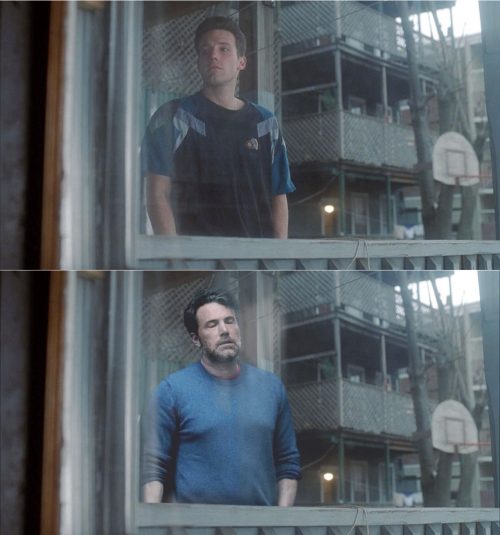
Look, you’re a chill reader, so don’t take this the wrong way but, in a few years if you’re still coming here, scrolling down, hitting refresh, looking for comments, I’ll fuckin’ kill ya. That’s not a threat, that’s a fact, I’ll fuckin’ kill ya.
No. No, no no no. Fuck you, you don’t get to say you’re bored, esoterically inclined, nostalgic for some shit storms. Cuz tomorrow I’m gonna wake up and I’ll be fifty, and I’ll still be doin’ this shit. And that’s all right. I got time. But you’re an actual writer, like with a hardbound novel with blurbs n’ shit, mildly reviewed on Amazon because of those one-star review pricks complainin’ that the delivery was late. I’d do fuckin’ anything to have what you got. So would most of these fuckin’ guys. It’d be an insult to us if you’re still here in a year. Hangin’ around here is a fuckin’ waste of your time.
Oh, I don’t know that? Let me tell you what I do know. Every night I bust out a few drafts of some shit, get tanked and hate follow your twitter. You post some way too serious shit, I have a good laugh and that’s great. But you know what the best part of my day is? It’s for about ten seconds after this post is tweeted and I think maybe you’ll like it. Like an actual important someone. No retweet, no reply, no nothin’. Just a simple heart. I don’t know much, but I know that.
Mark’s movie
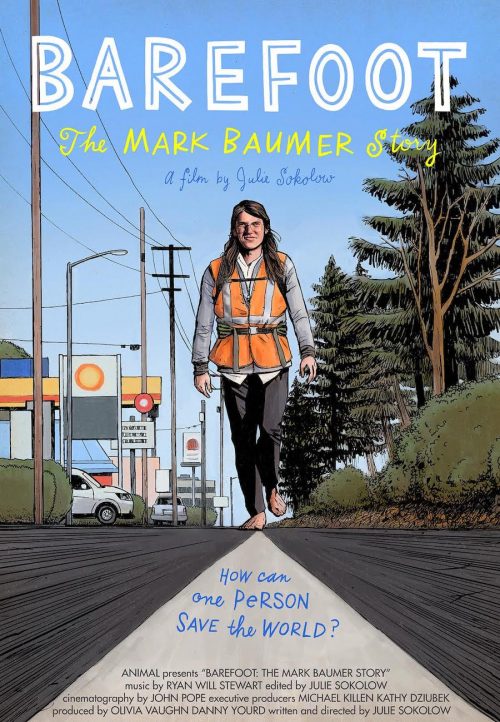
1091 Pictures has picked up Barefoot: The Mark Baumer Story for a digital release on October 27th (via Deadline). Filmmaker Julie Sokolow compiled a bunch of Mark’s youtube videos, alongside interviews with family and friends, to make the film. You can check out more info here.
The last time I saw Mark was two years ago during an ayahuasca ceremony. I had just puked, and he showed up to say hey what’s up, i miss u. He said that death is a kind of expansion, an expanding into pure light and acceptance and love, and we’re all just energetic beams of light walking around, so it’s cool because we can basically hang out with him whenever we want.
But I still miss him buttloads, all the time.
Collages on Shabbos
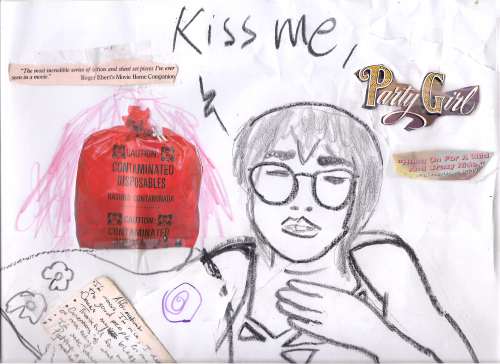
This week’s collage is “Kiss Me, Partygirl” by Pilot Jeanne Gosh.
pilot jeanne gosh is a mother, a friend, and a 30 ft tall wolf. her work has been featured in Spy Kids Review and Voicemail Poems. she enjoys riding the train and lying on the floor listening to someone play video games.
Chogyam Trungpa on Depression
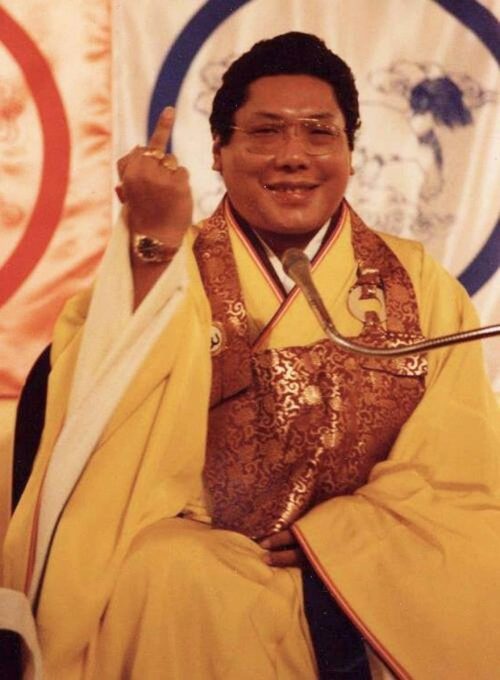
Chogyam Trungpa was a Tibetan Buddhist meditation master. At the age of 20, he witnessed the occupation of his homeland and the destruction of his monastery, and had to flee Tibet and travel for nine months by foot to reach safety in India. He ate his shoelaces and watched his friends die on that journey. 13 out of 300 refugees survived. His teacher had a vision that Trungpa would bring meditation to the West, and so he moved to the United States in 1969. He did coke with Joni Mitchell before showing her a breathwork exercise that inspired her to quit coke altogether, and he taught David Bowie how to meditate. He hung out with hippies and made them burn their weed. He slept with lots of white women, and drank so much booze that he died from cirrhosis of the liver before turning 50. The dude could meditate for weeks without eating and then drink you under the table.
A series of Trungpa’s lectures were published in the book, Cutting Through Spiritual Materialism, where he says things like, “Compassion is a war on want” and “Ego is the monkey of cognition” and “We meditate because clouds are clouds and the sky is blue.” Reading this book during this fuckhole of a year has been an interesting experiment as I oscillate between mindful awareness and wanting to rip my face off. I recommend it. Recently, I came across this answer Trungpa gave regarding how to cope with depression. I found it interesting to think of depression having a kind of ‘texture’, and the idea that there can be great intelligence in the unknowing:
Well, try to relate to the texture of the energy in the depression situation. Depression is not just a blank, it has all kinds of intelligent things happening within it. I mean, basically depression is extraordinarily interesting and a highly intelligent state of being. That is why you are depressed. Depression is an unsatisfied state of mind in which you feel that you have no outlet. So work with the dissatisfaction of that depression. Whatever is in it is extraordinarily powerful. It has all kinds of answers in it, but the answers are hidden. So, in fact I think depression is one of the most powerful of all energies. It is extraordinarily awake energy, although you might feel sleepy.
But, at the same time, you are experiencing tremendous texture, the texture of how the stagnation of samsara works, which is fantastic. You feel the texture of something. That entertainment didn’t work. This entertainment didn’t work. Referring back to the past didn’t work; projecting into the future didn’t work. Everything is made out of texture, so you could experience depression in a very intelligent way. You could relate with it completely, fully. And once you begin to relate with it as texture of some kind, as a real and solid situation which contains tremendous texture, tremendous smell, then depression becomes a beautiful walkway. We can’t discuss it really. We have to actually get into heavy depression and then feel about that.
River Furnace’s Fashion Issue is absolutely everything.
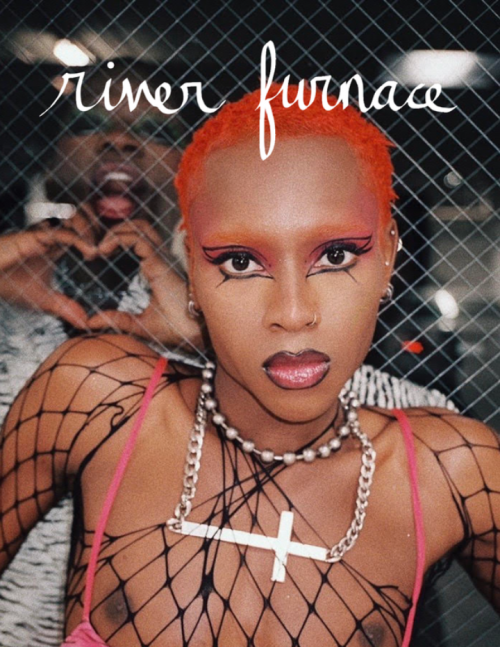
Fashion has always been a point of contingency for me. Fashion is made to a standard size or specification than it is to order. It’s like an ancient text that seems to offer an inventiveness for Black people and Black folk’s pleasure where the rest of the world vehemently rejects it. However, the marketing, fashion and entertainment industry aims to exploit these inventive Black spaces. It obfuscates just as much as it brings to light.
~ Juju
Fashion is more than expression. Fashion is denial, refusal and incoherence where they are not allowed — and through this defiance, self fulfillment. Fashion, like art, is the product of imagination, of energy and soul put to purpose for a goal that is under no obligation to be explained. That vacates still life to give birth to more. This, too, is fashion.
~ Warpath Slave
Fashion occurs at the intersection of body and world, an opportunity to (non)conform. Online, it is an invitation for commentary, which you can ignore. But if you’re ditching the lesbian sport shorts to go out in a dress, prepare to absorb their stares, or have a hand on your mace for when the men follow. Remember, t/girls, our accessories are also part of our fashion.
~ Neptune
September 9th, 2020 / 1:30 pm
The Jolly Corner
Some months ago, I was rereading Colm Toibin’s great first novel, The South, when I realized something about the way a voice is made—or maybe I would say forged. I’ve heard Colm talk in interviews about the silences in his family—the hush that fell over his home in (I believe) Enniscorthy, Ireland after his father died when he he was young. He talks about the way the unsaid reigned over his home, the way that much of what was important lay well on the nether side of speech. And you can hear that in the rhythm of his prose, even when he isn’t writing about Enniscorthy and the spaces in which he was raised. You can hear that hush, that sense of the unsaid as an “unmoved mover,” as the lost pater familias in command of the family. You can hear those empty hallways and that ghostly tonality.
I think also of Henry James’s story “The Jolly Corner,” which has been on my mind these many months when many of us have been (lucky enough to be!) barricaded in our homes. In this story—like The Turn of the Screw, haunted not so much by a ghost but by the possibility that it is in the end a ghost story—the main character returns to the New York City of his youth, after being gone for thirty-three years, to look at his family’s (all of whom are dead) two old properties, one of which is being renovated. His childhood home is located on “the jolly corner,” and I suppose it’s James’s thesis that it is only at our own jolly corners that we can struggle with grief and regret, disenchantment and the treachery of memory. (NB: I cribbed some of this synopsis from Wikipedia.) Like James himself, he finds the city materialistic and vulgar. Let me quote from Colm’s introduction to the New York Review of Books’s The New York Stories of Henry James:
In “The Jolly Corner,” written after his American sojourn of 1905, James found a new doubled self to dramatize, the man who had left New York and lived in England, and his double, still haunting him, who had never left, who still wandered in those same rooms which would fill James’s autobiography and had filled his novel “Washington Square.” … [Brydon, the main character] has kept his old house downtown empty all the years [he has been gone], having it cleaned and cared for every day. He now goes there to be haunted by a figure moving in its dark rooms, the figure who has never left them, just as James himself in part of his mind has never left them.
My thinking is that we are often, as we write, moving through these dark rooms, these jolly corners that we have long haunted. We are confronted by our doubles and must struggle with them—and not only in content, but in form, in voice. In my experience, the way that my family talked to each other, the kinds of conversations we had, the things that were spoken of and those that were not—the particular hushes, the specific silences and also excesses of saying—all of this informs my voice when I am writing authentically. I am haunted by the language of youth and home. Of course, in “The Jolly Corner,” the protagonist ends up physically fighting his double—for dominance over the jolly corner, for sovereignty over his own memories. For other still more difficult reasons, I’m sure. So when I write, what is the struggle? If, like James’s protagonist, I am fighting a shadow-self, what are we struggling over? What kind of terrain is at stake?
Collages on Shabbos
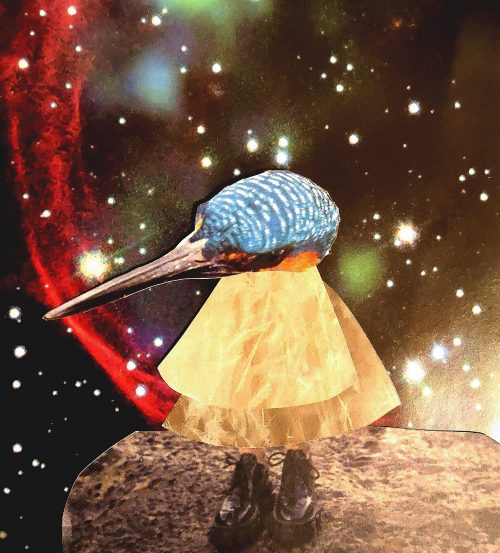
This is a series where I post collages people sent me just in time for Shabbos.

These collages are by Roz Leahy.
Roz is a hot, gay, trans woman. They try really hard to make interesting things and they’re on Twitter @allthingstruly.
If you want to send me a collage to post on a Shabbos to come, you can do so at collages::a:t::undying.club.
Mrs. Dalloway v. Ulysses
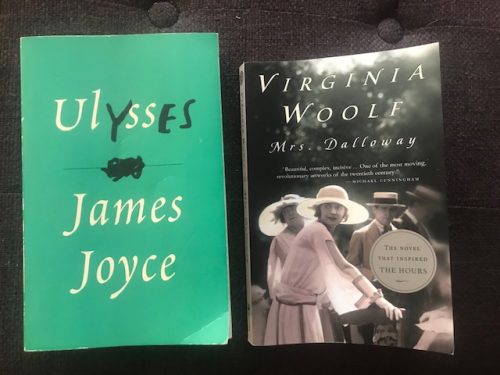
I recently reread Mrs. Dalloway and Ulysses. I read them when I was young, now I’m at the beginnings of becoming old.
Both books take place during one day, Mrs. Dalloway June 13, 1923, and Ulysses June 16, 1904.
Mrs. Dalloway feels like a day to me. I felt like I escaped into 1923, that I was really there, hanging out with Clarissa, Elizabeth, Peter and Septimus. Even though the characters are upper class, in another country, 100 years ago, far removed from my personal life experience; it still seems like Woolf captures many of the universals of life, throwing parties, shopping, having children, having a partner for a long time, having a person who you once loved, imperialism, having wars and PTSD veterans, being a wife of a PTSD veteran, sexuality and friendship. Basic experiences, we all have, regardless of social class or time.
I recently read The Waves and Orlando, sometimes when I am reading Woolf, I feel like I am having a mystical experience.
I am fascinated by the structure and arrangement of Ulysses. I get very zenned out when reading Ulysses, like I am in a dreamland, away from my life. It shows me personally that it is possible to supply information in multiple ways and the audience still gets a picture of what is happening.
I don’t feel like I am living a day in Dublin though, and I don’t feel like it contains many universals, it is just two guys walking around chatting with other guys all day. There is this scene that I guess is a nightmare hallucination, that stretches from 429 to 609, that is like, why?
I believe Joyce was a very rigorous, competent and hardworking fellow, however I don’t think he was very deep and had never taken the time for true self-examination, so trying to use two or three people, as symbols for what it means to be human, comes off, a little funny.
The sad thing, I get from both books, is that life in the early 20th century United Kingdom offered no spiritual path and mental health treatment (The treatment Septimus gets seems bad). These characters were eaten by their agonies. I am really happy we have invented self-care and have medications for mental issues.
I am glad I reread both books, in 15 years I’ll read them again.
